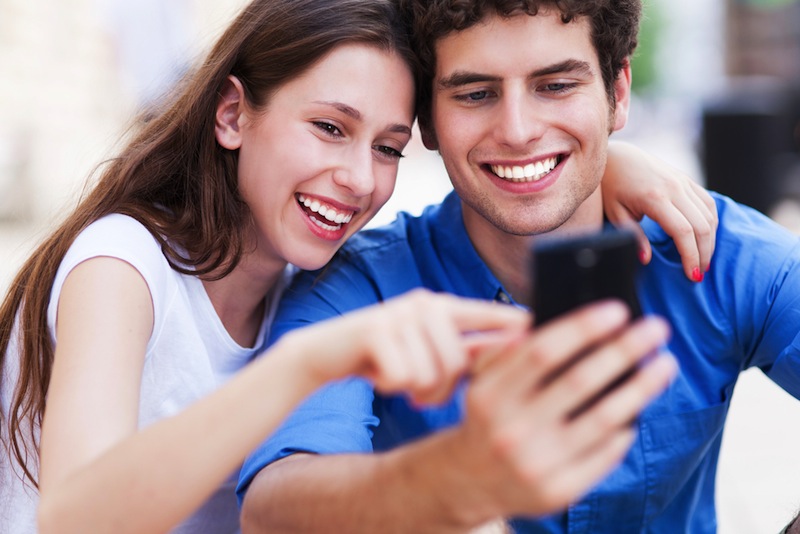Dying for a Selfie? Why People Risk Their Lives For Self-Photos

Selfies seem to be everywhere these days: on the campaign trail, at the Oscars, even at funerals.
Turns out people will go to great lengths, risking life and limb, to capture the perfect shot of themselves. Officials in Russia recently launched a campaign warning of the dangers of selfies after a number of selfie-related injuries and deaths occurred in the country. For instance, one Russian teenager died while trying to take a selfie on a railway bridge, according to the Guardian.
But why have selfies become so popular, to the point that people are willing to risk their lives to take the perfect snapshot of themselves?
Experts say the popularity of selfies results from a number of factors. For starters, smartphones now make it extremely easy to take selfies and share them with friends. And after seeing so many selfies, we may try to one-up our friends with what we think is a cooler or more interesting image, perhaps without even being aware of our competitive nature.
People also have a desire to connect with others — which is often done with images these days — and present themselves in a certain way to the outside world, which selfies allow, said Patricia Wallace, author of "The Psychology of the Internet," 2nd edition (Cambridge University Press), due out later this year.
"This is a good example of a technological movement meeting up with the drive to connect socially and manage your presentation," Wallace said. "As soon as it became so easy to make selfies, then they exploded." [5 Technologies for the Selfie-Obsessed]
In addition, social media itself has created an environment in which people are prompted to think about themselves, and post and share what they're doing. In a society in which images have become an increasing part of how people communicate, it's become accepted, and almost expected, for people to post selfies.
Get the world’s most fascinating discoveries delivered straight to your inbox.
"As a society, we have moved toward a new type of Net visual culture, where we are drawn to images, pictures of others, depictions of events and people," said Anabel Quan-Haase, an associate professor in the faculty of information and media studies at the University of Western Ontario. "So we expect images of others, and we want to see what their lives are like."
Experts noted that while posting a lot of selfies can be a characteristic of narcissism, selfies are not necessarily narcissistic since they've become such a norm.
Dangerous selfies
But why would people risk their lives for a selfie? It may be related to a concept called competitive social comparison, in which people tend to compare themselves with others online and try to outdo friends with pictures to show their lives are more interesting, all without necessarily thinking about it, said Zlatan Krizan, an associate professor of psychology at Iowa State University.
"There's this general phenomenon where we raise the bar for ourselves of what would be a fun selfie to take and share with others," Krizan said. "Nobody wants to be outdone."
In a sense, a seflie is proof that you really were at a particular place, having fun, Krizan said. As the standard of what people find interesting or impressive goes up, people may engage in risky activities to take an interesting selfie, he said.
Quan-Haase noted that selfies reveal how people want to present themselves to others; so the person thinks about how they look and what others will find interesting before taking and posting a selfie. This desire to get that perfect shot may lead people to take risks.
"It is part of our visual culture. We want to create something new, something that will draw others' attention, and we can sometimes only achieve this through taking risks," Quan-Haase said.
Faces get more likes
Also humans as a species pay special attention to faces. "We are wired to pay attention to others' faces as part of evolution," Quan-Haase said.
Some studies suggest that pictures with faces get more views, likes and shares. So people may take selfies as a way to get more views and likes for their posts.
"We are all trying to draw attention in an already busy Web culture. Those pictures that help us engage with our audience will be the ones we are most likely to post," Quan-Haase said.
Not necessarily narcissism
It might seem logical to assume that people who post selfies are more narcissistic; that is, they are self-centered and have an overly important view of themselves and a need for attention. But research to date indicates this is not the case; most selfie posters aren't narcissists. [7 Personality Traits That Are Bad for You]
In one study detailed June 29 in the journal Psychology of Popular Media Culture, researchers followed the Instagram accounts of more than 100 students for a month, and analyzed the posts. The investigators found that overall there was no link between the number or frequency of selfie posts and narcissism.
The study scientists also divided selfies into categories: those taken with friends, those taken during certain activities/events (like at a concert or on vacation) and those that focused on physical appearance. The researchers found that people who posted a lot of selfies that highlighted physical appearance tended to have higher levels of certain narcissistic traits, such as entitlement and fragile self-esteem.
In addition, people who posted a lot of selfies with friends were less likely to have grandiose views of themselves, according to the study.
"On the surface, you would jump to the conclusion that people who post selfies" are more narcissistic, Wallace said. However, "it's become so accepted, and you see dozens or hundreds of these selfies, [so] it's not immediately predictive of extreme narcissism," Wallace said. Some people may just want to share a funny or spontaneous moment with others, she said.
Even so another study, detailed in the journal Personality and Individual Differences, found that men who frequently edited their selfies before posting scored higher on narcissism than those who didn't edit their selfies.
"The nature of a social media account does offer lots of opportunities to be self-absorbed," Wallace said.
Follow Rachael Rettner @RachaelRettner. FollowLive Science @livescience, Facebook& Google+. Original article on Live Science

Rachael is a Live Science contributor, and was a former channel editor and senior writer for Live Science between 2010 and 2022. She has a master's degree in journalism from New York University's Science, Health and Environmental Reporting Program. She also holds a B.S. in molecular biology and an M.S. in biology from the University of California, San Diego. Her work has appeared in Scienceline, The Washington Post and Scientific American.


